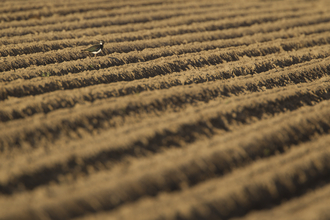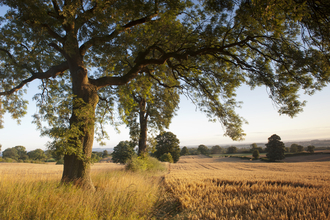The UK must stop relying on imports and fix diets by doubling the land used to grow fruit and vegetables using nature-friendly farming, according to a new report from environment charities.
The Soil Association, Sustain and The Wildlife Trusts are calling for farmers and growers to be given a fair deal and put in the driving seat to deliver sustainable food security and healthy diets.
Launched on Wednesday 26 June at Groundswell Farming Festival, the report highlights the “vulnerability” of UK horticulture. It warns that public health will be further at risk if current trends continue and production declines further.
The charities have penned the report to raise the alarm over the fact that imports account for most of fruit and nearly half of veg consumed in the UK, while less than a third of people eat their five a day.
They call for government intervention to back sustainable British farmers and growers, and for land used for horticulture in England to double. This would only be a small change to take it from 2% to 4% of farmland.
Report co-author and Soil Association senior policy officer Lucia Monje-Jelfs said: “British fruit and veg is in crisis. Our diets are costing the NHS billions every year and the countries we import from are being hit by the impacts of climate change. We should be increasing our homegrown produce. But instead, many growers fear for the survival of their businesses and our fruit and vegetable consumption has fallen to the lowest level in half a century. If we scaled up agroecological horticulture, boosting access to healthy and sustainable food across the country, we could help to reverse the public health disaster, slash farming emissions, and restore wildlife. The next government must act to support the country’s growers.”
Farmers need a just transition to sustainable practices
Agroecological systems, the charities say, should be prioritised to create a sector that works with nature rather than against it, relying on a healthy and resilient ecosystem instead of pesticides and artificial fertilisers.
The report calls for the next UK Government to put more money into incentives for nature-friendly fruit and veg production, including organic, alongside tailored support for small-scale growers.
It also calls for farmers and growers to be supported through a shift away from farming on peat.
The groups urge government to invest in farmer-led research to support sustainable and nature-friendly methods of farming on peat, including finding crop varieties that can be grown in wetland conditions in paludiculture systems
It will also be necessary to scale up production in other parts of the country with market gardens and field-scale horticulture, including in areas that historically were important for fruit and veg like the Vale of Evesham, the report says.
Vicki Hird, strategic lead on agriculture for The Wildlife Trusts and co-author of the report, said: "Transforming our fruit and vegetable growing sector is vital for our health, climate, nature and for the precious lowland peat habitats that are currently destroyed by growing these products. We need to ensure we can grow more fruit and vegetables everywhere – and do this using sustainable methods that don’t harm the climate, and that work alongside nature using integrated pest management. Growers need to be supported in this period of change and must be treated fairly in the marketplace so that the transition to nature-friendly growing can happen for the long term.”
Will White, Sustainable Farming Coordinator at Sustain, said: “The UK stands at a critical juncture in its approach to food production and public health. Our current food system is not only failing our health, with diet-related diseases costing the NHS billions annually, but also leaving our growers vulnerable to unrelenting market pressures and climate impacts. Given this new era of increasing climatic and geopolitical instability, it’s imperative that the next government backs domestic fruit and vegetable production with the robust policies outlined in this report, which include substantial investments in public procurement of homegrown produce, local food hubs, peri-urban farming, and farmer-led research. We must also ensure fairness and flexibility in supply chains to create the level playing field needed for our growers to thrive.”
Farmers need a fair deal
As well as doubling the land used to grow fruit and veg, the environment charities are also calling for action to boost consumption with government intervention to help create markets for British produce.
They call for an overhaul of public procurement so that schools and hospitals must prioritise homegrown fruit and veg from agroecological systems.
The asks also include government investment in local food hubs which support short supply chains and create accessible markets for smaller growers, including on the edges of towns and cities.
And the report calls for better fairness and flexibility in supply chains for farmers – most of whom cite supermarket pressure as the reason they fear for their business.
Guy Singh-Watson, founder of organic veg box company, Riverford - which is a case study in the report alongside G's and Barley Wood Kitchen Garden - said: “Growing more British fruit and veg is essential for the nation's health and food security. We're clear that this can be done in harmony with nature - Riverford has been doing this for 35+ years, we are proof that it can be done. However, farmers need a fair deal in the supply chain so that nature-friendly farming systems like our own can flourish. Agroecological, regenerative and organic practices are significantly under researched, and too many growers are struggling to stay afloat. The bullying behaviour of supermarkets and their suppliers needs to end, we need the return of honesty and decency to our supply chains.
"The next government has a responsibility to spark a shift to a fair farming system where sustainable, British production brings us more of the food that is essential for human and planet health. Overall, a long-term plan is needed to build up more, shorter, and farmer-focused routes to market, which would not only allow British family farmers to make a fair return on their produce, but also allow them to invest in decent jobs for rural communities, protecting our climate and nature, and strengthening our supply of high-quality, homegrown food for generations to come.”




